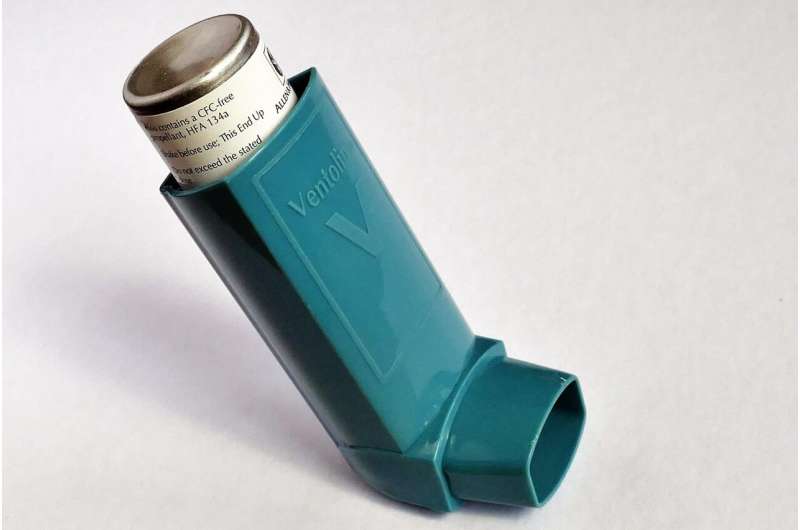This article has been reviewed according to Science X's editorial process and policies. Editors have highlighted the following attributes while ensuring the content's credibility:
fact-checked
trusted source
proofread
Potential of inflammatory biomarkers to guide treatment in mild asthma

National Jewish Health researchers are looking for ways to identify patients with untreated mild persistent asthma who might benefit from daily inhaled treatment based on inflammatory biomarkers. Their results were published in April in the Journal of Allergy and Clinical Immunology (JACI) In Practice.
"Patients with severe asthma can be prescribed biologic therapy based on inflammatory phenotypes. Yet, patients with mild persistent asthma are treated based on symptoms and exacerbations," said lead author on the study Ronina Covar, MD, a pediatric allergist and immunologist at National Jewish Health.
"If we can characterize these patients based on their inflammatory biomarkers, this would give us the ability to know which treatments would be most effective."
Researchers have found that patients with mild persistent asthma who had eosinophils (a type of white blood cell) in their sputum (phlegm and spit), responded better to inhaled corticosteroids than to a placebo.
In their new report, the majority of these patients have non-eosinophilic sputum, but other inflammatory biomarkers were identified in their blood and exhaled samples. Therefore, sputum eosinophilia does not seem to be an adequate target for most patients with mild persistent asthma. Other biomarkers, along with clinical features, may be the best available option to consider a trial of inhaled corticosteroid.
"These findings potentially provide another clinical tool to help clinicians consider the use of inhaled corticosteroids in certain mild asthma cases," said Dr. Covar. "It also paves the way for more research to identify patients with this type of mild asthma, who comprise the majority of asthma patients seen in clinic that could benefit from inhalers."
Dr. Covar added that further research should be done to study blood eosinophil count (blood lab work) and fractional exhaled nitric oxide (exhaled nitric oxide test) to determine if they can help further identify patients that can benefit from inhaler treatment.
More information: Ronina Covar et al, Association of Sputum Eosinophilia With Easily Measured Type-2 Inflammatory Biomarkers in Untreated Mild Persistent Asthma, The Journal of Allergy and Clinical Immunology: In Practice (2023). DOI: 10.1016/j.jaip.2023.12.010





















